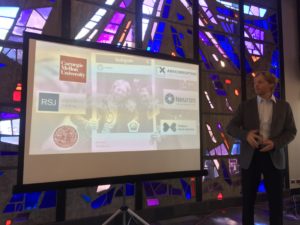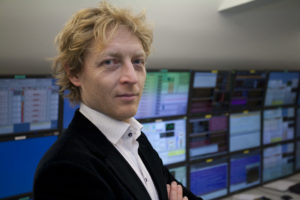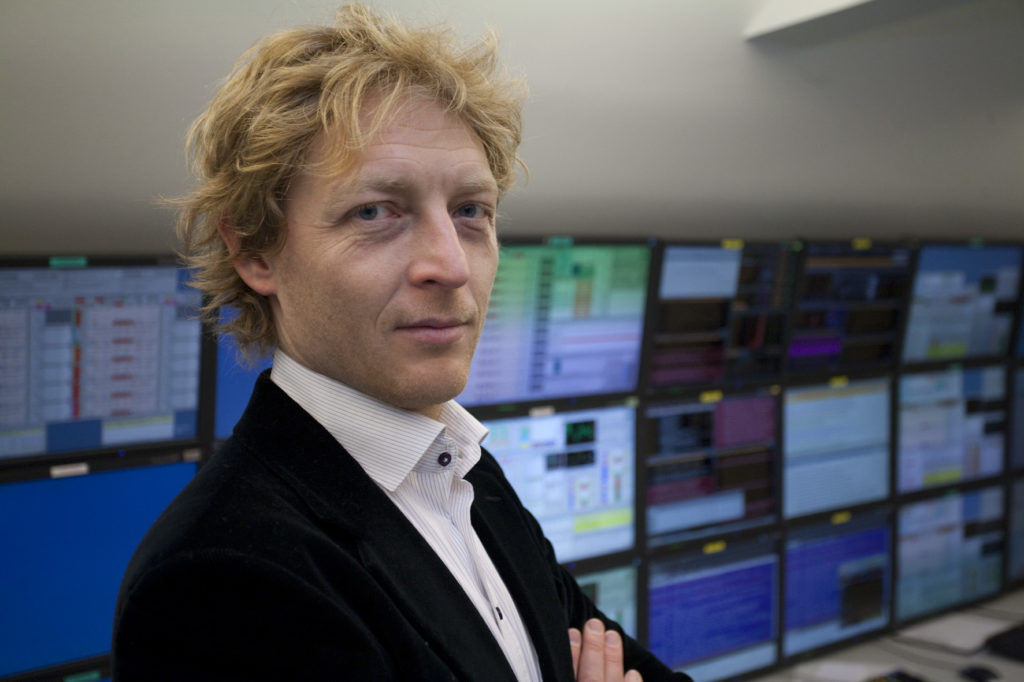Last Wednesday, Karel Janeček, stepped foot onto the Berkeley campus to give a talk regarding his Democracy 2.1 initiatives. Janeček, a well-known Czech mathematician, made his first mark in the financial world in 1994 when he co-founded RSJ Algorithmic Trading. It is now one of the world’s largest financial derivative firms, making Janeček the first self-made billionaire of the Czech Republic.

However, an ambitious man like Janeček does not stop there. He is now using math expertise to create better democracies and decision-making processes around the world. His platform, Democracy 2.1, takes a new spin on politics, gives voters more power over their governments, and reduces political corruption.
How does it work? Democracy 2.1 allows voters to cast more than one vote, and even a negative vote for measures they strongly oppose. This electronic voting process encourages citizens to become more informed and engaged while increasing the impact of their votes, stopping politicians from gaming the political system to further private agendas. The platform protects citizens against extremist politicians and policies by arming them with the power to say no, a feature Janeček jokes we need this presidential election.
Democracy 2.1 found one of its first successes in New York. It is now aiding participatory budgeting, the practice of involving citizens in the allocation of public funds. He was surprised to find this type of voting has applications beyond politics and plans to expand into businesses and social enterprises as well.
Karel Janeček tackles outdated democracies with optimism for a future of fair, impactful democracies. Soon, this platform may be changing governments and businesses while solving consensus-driven frustrations around the world.
Last Wednesday, Karel Janeček, stepped foot onto the Berkeley campus to give a talk regarding his Democracy 2.1 initiatives. Janeček, a well-known Czech mathematician, made his first mark in the financial world in 1994 when he co-founded RSJ Algorithmic Trading. It is now one of the world’s largest financial derivative firms, making Janeček the first self-made billionaire of the Czech Republic.

However, an ambitious man like Janeček does not stop there. He is now using math expertise to create better democracies and decision-making processes around the world. His platform, Democracy 2.1, takes a new spin on politics, gives voters more power over their governments, and reduces political corruption.
How does it work? Democracy 2.1 allows voters to cast more than one vote, and even a negative vote for measures they strongly oppose. This electronic voting process encourages citizens to become more informed and engaged while increasing the impact of their votes, stopping politicians from gaming the political system to further private agendas. The platform protects citizens against extremist politicians and policies by arming them with the power to say no, a feature Janeček jokes we need this presidential election.
Democracy 2.1 found one of its first successes in New York. It is now aiding participatory budgeting, the practice of involving citizens in the allocation of public funds. He was surprised to find this type of voting has applications beyond politics and plans to expand into businesses and social enterprises as well.
Karel Janeček tackles outdated democracies with optimism for a future of fair, impactful democracies. Soon, this platform may be changing governments and businesses while solving consensus-driven frustrations around the world.


